Choosing the Right Window Glazing for Offices vs. Homes
You know that feeling when a room just doesn't feel right? It might be too hot in the summer, too cold in the winter, or filled with glare when you're trying to work or relax. Often, the reason is the windows, specifically, their glazing.

Window glazing controls how much light, heat, and noise enter a space. It affects comfort, energy use, and how a room performs throughout the day. What works well in a quiet bedroom might not suit a busy office with large windows. That's why glazing for homes and glazing for offices require different solutions.
Making the right choice means better comfort, lower bills, and long-term value. WANJIA designs energy-efficient windows that match real-world needs for both homes and workplaces. It's all about finding the right fit for each space.
What Is Window Glazing?
Window glazing refers to the number of glass layers in a window and how those layers improve comfort, lower energy use, and block unwanted noise. Choosing the right glazing depends on the use of space, and understanding that homes and offices need different things.
Types of Window Glazing
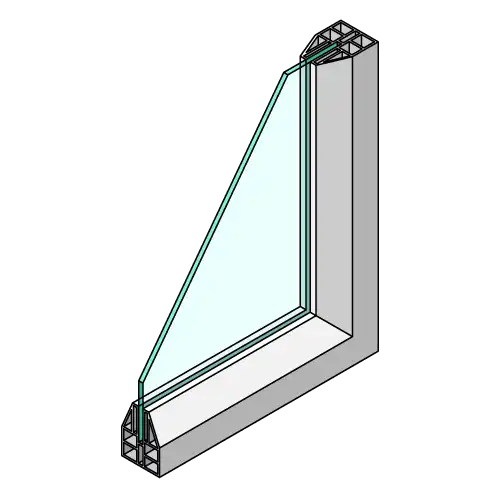
Single Glazing
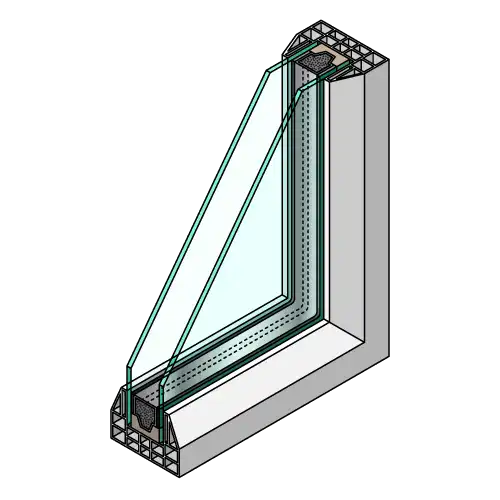
Double Glazing
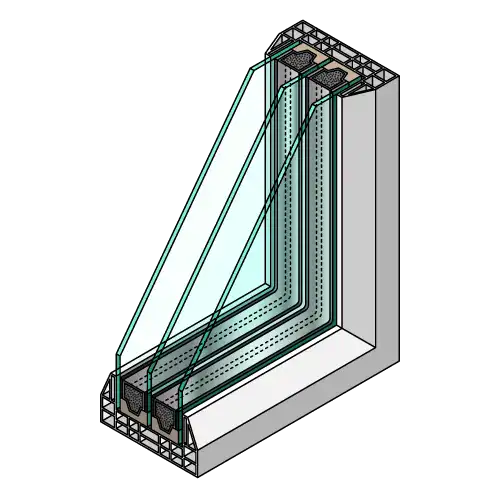
Triple Glazing
- Single Glazing: This uses one pane of glass. It offers little insulation and does not block noise well. It's rarely used in new buildings because it can't meet today's energy standards.
- Double Glazing: This has two glass panes with a sealed space between them. It keeps rooms warmer in winter and cooler in summer. It also helps reduce outside noise. Many glazing for homes setups use double glazing.
- Triple Glazing: This adds a third pane and another air gap. It gives stronger insulation and better noise control. Triple glazing is common in cold areas or busy urban spaces. Some energy-efficient windows use this to boost performance.
If you want to know more about how to choose different window glazing types, you can read the our related blog: Single Pane VS Double Pane Windows| How Should I Choose?
How Glazing Helps With Energy, UV, and Noise
The right glazing helps keep your home or office comfortable all year. It keeps the heat inside during winter and blocks it out during summer. As a result, you don't need to use as much heating or air conditioning.
Glazing also helps protect your space from the sun. It blocks harmful UV rays that can fade your furniture or floors over time. This matters even more in rooms with lots of sunlight.
On top of that, good glazing cuts down noise. It can lower sounds from traffic, construction, or busy streets, making your space feel calm and quiet.
Modern Glazing Technologies
New types of glazing come with extra features that improve how windows perform.
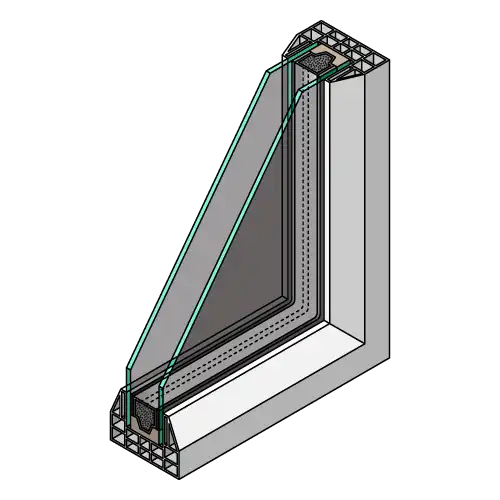
Low-E Coatings
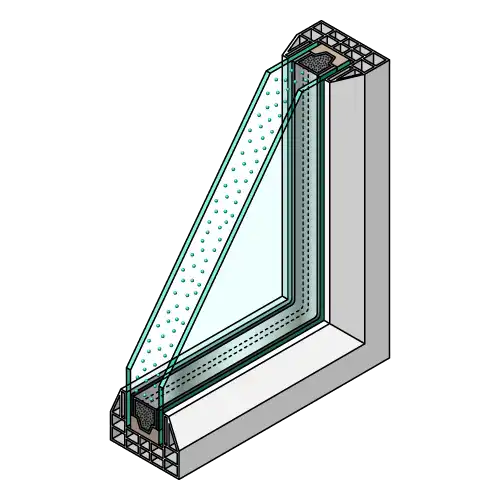
Gas Fills
Together, these technologies make glazing for offices and glazing for homes more efficient and more comfortable to live or work in.
Glazing for Homes: Comfort and Quiet Matter Most
At home, comfort matters most. Nobody wants a living room that feels stuffy in summer or a bedroom that shakes from street noise. The right window glazing can help fix this.
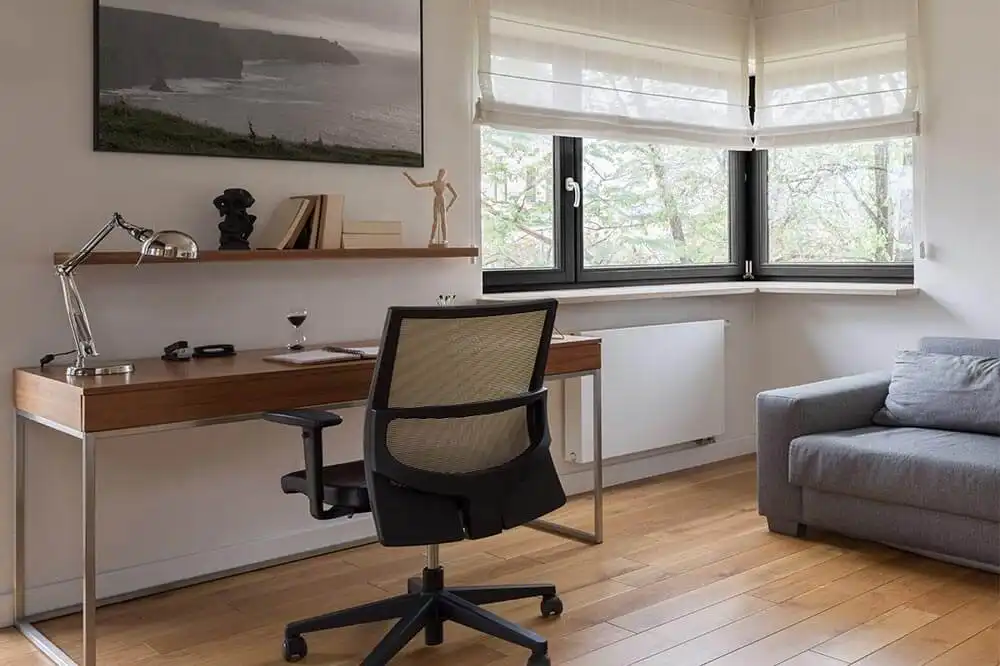
Lowering Energy Bills
Glazing for homes keeps indoor temperatures steady. Double or triple glazing cuts heating in winter and air conditioning in summer. This leads to lower energy bills.
Keeping Rooms Comfortable
Good glazing stops outside heat or cold from coming in. It helps your home stay cool on hot days and warm when it is cold outside. This creates a more comfortable living space.
Blocking Outside Noise
Traffic, barking dogs, and street sounds can be distracting. Thick glass and sealed layers block out noise. This makes your home quieter, even in busy areas.
Bringing in Light Without Problems
Natural light brightens any room. Too much sun can cause glare and fade furniture. Energy-efficient windows block harmful UV rays but still let in soft daylight.
A Better Look and More Security
Homeowners want windows that look good and keep them safe. Glazing supports stronger glass for better security. It also comes in styles that fit your home's design.
Modern glazing for homes combines comfort, savings, quiet, and style. It is a simple way to improve your home every day.
Glazing for Offices: Light Control and Productivity
Offices need windows that help people work well. Bright sunlight can cause glare on screens and make it hard to focus. Thankfully, good window glazing solves this problem and much more.
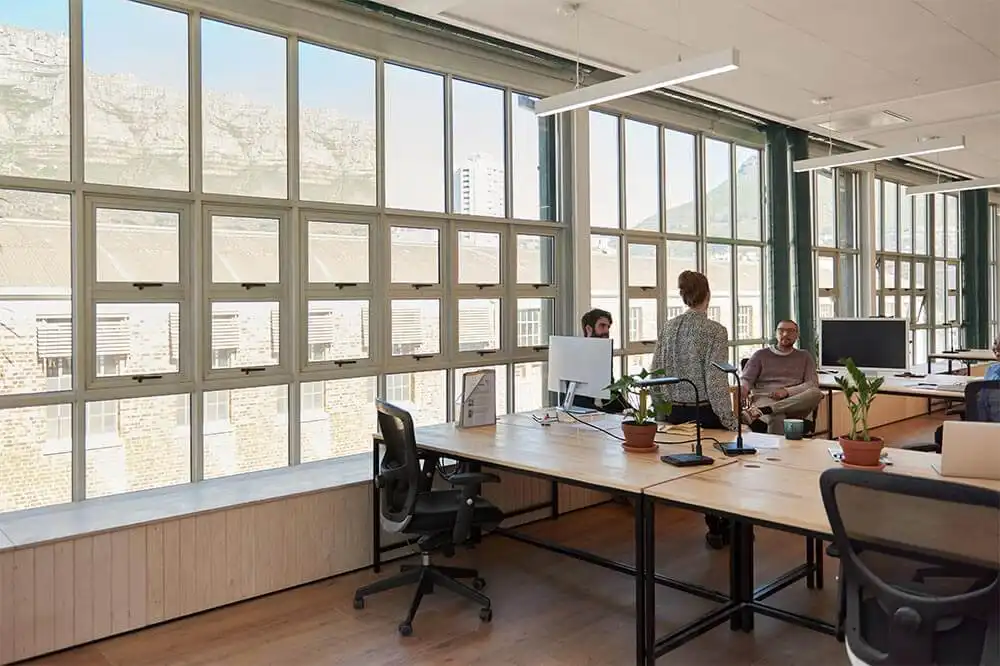
Reducing Glare on Screens
Glare distracts workers and causes eye strain. Therefore, glazing for offices often uses special coatings that reduce glare while still letting in plenty of light. This way, employees stay comfortable and focused throughout the day.
Filtering Harmful UV Rays
Sunlight brings harmful UV rays that can cause skin damage and fade furniture. For this reason, office glazing blocks most of these rays. As a result, it keeps workers safe and protects office furniture and equipment.
Controlling Temperature in Busy Spaces
Offices often have many people and electronic devices that generate heat. Good glazing helps keep the temperature steady. It stops rooms from getting too hot or too cold. Because of this, energy use drops, and everyone stays comfortable.
Supporting Sustainability Goals
Many office buildings aim to meet green building standards, such as LEED certification. Energy-efficient glazing helps reduce heating and cooling needs. Thus, it lowers the building’s overall carbon footprint and cuts long-term costs.
Boosting Productivity and Cutting Costs
Choosing the right glazing makes a big difference in employee comfort. Comfortable workers focus better and take fewer breaks. At the same time, energy savings reduce monthly bills. For these reasons, glazing plays a key role in smart office design.
Good glazing for offices balances light, heat, and protection. Altogether, it creates a workspace that feels right and works well every day.
Office vs. Home: Key Differences in Glazing Needs
Selecting the suitable window glazing means understanding how homes and offices use their windows differently. Each space has its own needs, so glazing solutions must fit the setting.
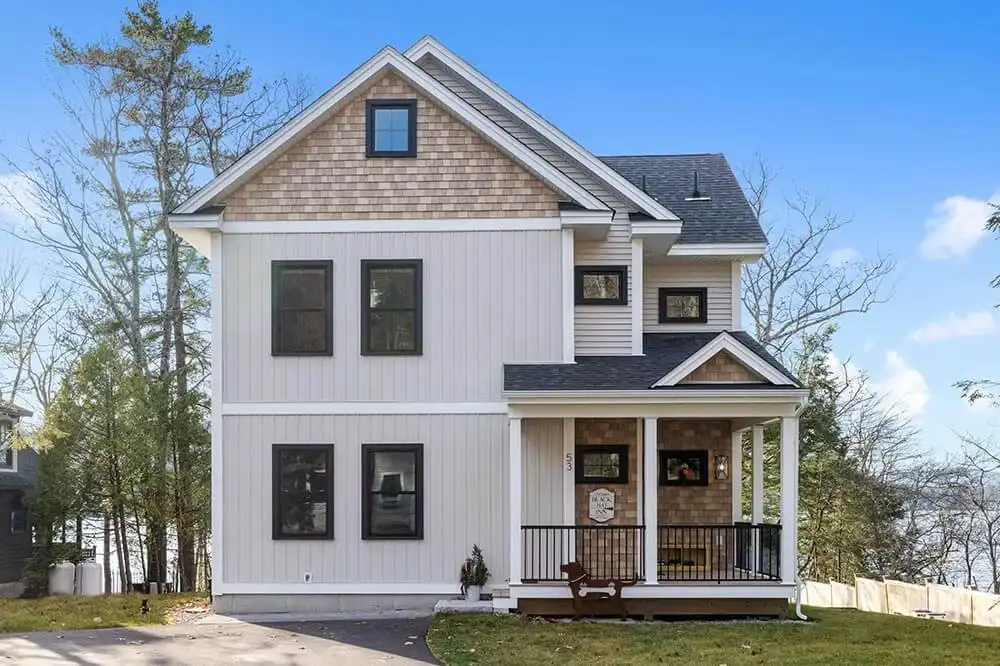
Usage Patterns
Homes usually have smaller windows and fewer people. Families spend time relaxing, so comfort and quiet are top priorities. Offices have larger windows and many people working all day. They need glazing that controls light and heat while supporting productivity.
Energy Priorities
Saving energy means keeping rooms cozy and cutting heating and cooling costs for homes. Glazing for homes focuses on insulation and reducing drafts. Offices need glazing that lowers energy use across big spaces with high occupancy. Here, keeping temperature steady is key to cutting costs.
Design Considerations
Homeowners care about how windows look. They want glazing that fits the style and lets in natural light. Office glazing must reduce glare and manage daylight to prevent eye strain. Design choices reflect these different goals.
Security Concerns
Safety matters everywhere. Homes need glazing that can resist break-ins and keep families safe. Offices may require stronger glass for high-traffic areas and extra protection against accidents or vandalism.
Smart Glazing Adoption
Offices tend to adopt smart glazing faster. This includes tinting or self-adjusting glass that reacts to sunlight, improving comfort and saving energy. Homes also benefit from smart glazing but usually choose it based on budget and style.
Each building needs glazing made for its purpose. Understanding these differences helps you pick the best windows for a quiet home or a busy office. Tailored solutions mean better comfort, efficiency, and value.
How to Choose the Right Glazing: Practical Tips
Picking the right window glazing doesn’t have to be stressful. By looking at a few key points, you can find a solution that fits your space, your budget, and your needs. This applies to both glazing for homes and glazing for offices.

Climate
To begin with, consider the weather in your region. In case you reside in a cold area, you can use triple glazing to retain heat. Conversely, hotter regions might require heat-blocking, energy efficient windows to reduce the expenses of cooling the environment.
Orientation
Then, see which way your windows are oriented. As an example, south or west facing windows tend to receive more sun. These may need special coatings that reduce glare and help manage indoor temperature, especially in work spaces.
Budget
Of course, cost matters. Start with a clear budget. Double glazing works well for most homes and offers solid savings. Offices may require more advanced options, which cost more upfront but often pay off over time.
Privacy Needs
Then, think about how much privacy you need. Bedrooms, bathrooms, and meeting rooms may need frosted or tinted glass. In addition, certain types of glazing reduce outside noise for more peaceful spaces.
ROI Expectations
Finally, think long-term. Consider how much you’ll save on heating and cooling. Offices often focus on performance and energy use, while glazing for homes tends to balance comfort and design.
To make the best choice, talk with a professional. A trusted provider like WANJIA can guide you based on your space, goals, and budget. That expert advice can make the whole process easier and smarter.
Final Thoughts
Choosing the proper window glazing matters more than most people think. On one hand, glazing for homes should focus on comfort, quiet, and style. On the other hand, glazing for offices must handle heat, glare, and daily use. Because every space works differently, the glazing should match the space.

Instead of making a quick choice based on price or looks, consider the full picture. For example, climate, sun exposure, and energy goals affect how well a window performs. In addition, long-term value matters as much as the upfront cost.
That’s why it helps to work with experts. A trusted provider like WANJIA understands what different spaces need. They design energy-efficient windows that improve comfort, save money, and support smarter building choices. With the right glazing, you get more out of every room.
Other Related Blogs about Choosing Windows:
